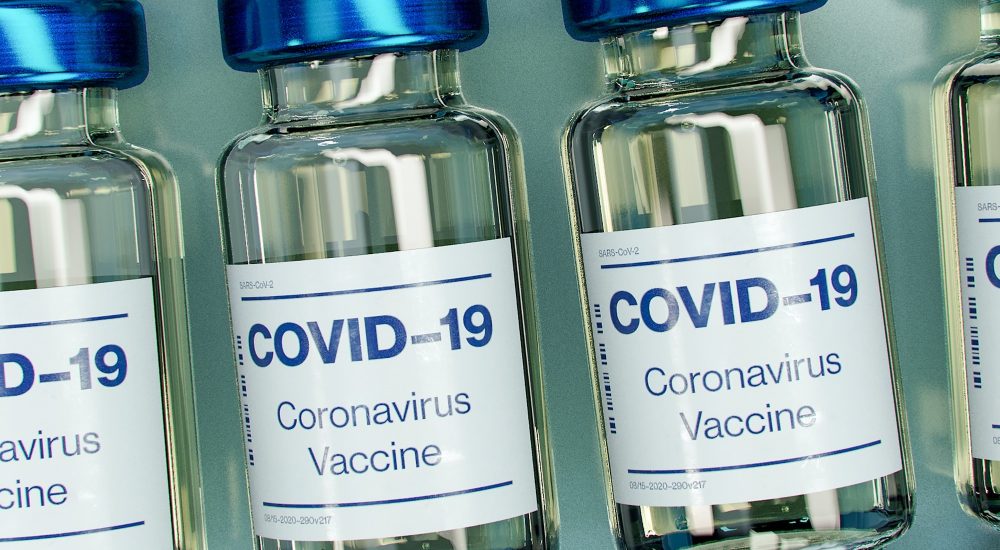 Datapwa Mujong is a GP trainee in North West London, developing an interest in Global Public Health at Imperial College. He is on Twitter: @drmujong
Datapwa Mujong is a GP trainee in North West London, developing an interest in Global Public Health at Imperial College. He is on Twitter: @drmujong
Nationally there has been a significant financial effort to increase the uptake of the covid-19 vaccine through community engagement. The government invested £23 million in Community Champions, and Clinical Commissioning Groups have been provided further funding to tackle Covid-19 vaccine inequalities.1,2 This has led to a growth of community initiatives such as community vaccination hubs, videos and print media in different languages, virtual discussions, and various other projects.1,3
The National Institute for Health and Care Excellence and Public Health England have recommended community centred approaches as an effective way of tackling health inequalities in the past.4,5 The Covid-19 vaccine effort has now escalated interest in this approach, so much that seldomly-heard groups are now increasingly being heard by healthcare services. Amidst this growing success, it seems something is missing. What is our plan to ensure we are not deafened to all or specific health inequalities following the covid-19 vaccine rollout?
The risks we should be conscious of are two-fold. Firstly is “initiative decay”, which means despite all our investments, in the long term, the engagement and health benefits we have gained could diminish.6 Another risk arises from our narrow aim to increase vaccine uptake amongst a sea of other health inequalities. This in effect produces an “improvement island”, which may be necessary now, but may not be sufficient in keeping the health and wellbeing of populations afloat.6 Paradoxically, aiming to increase vaccine uptake alone may increase distrust if other relevant inequalities are not addressed.
Ultimately healthcare services, and particularly patients and the public, suffer if our initiatives are not sustainable. For example, we may need more than the currently offered vaccine doses in the future. If our engagement with communities is not sustained, fatigue may arise from the plethora of new initiatives. In fact, public distrust could grow, and the quality of another vaccine initiative may not be optimal. Sustainability should therefore be a crucial element to all our community engagement initiatives to improve health, however what is it and how can we achieve it?
Sustainability should therefore be a crucial element to all our community engagement initiatives.
Sustainability has been defined in the NHS as when “new ways of working and improved outcomes become the norm. Not only have the process and outcome changed, but also the thinking and attitudes behind them are fundamentally altered and the systems surrounding them are transformed in support.”6
Sustainability is a vital part of improvement initiatives. Evidence-based tools have been developed to plan and assess for it throughout the initiative. Utilising one of these from the start of any project is paramount. To explore relevant factors for today’s Covid-19 vaccine community initiatives, the Long Term Success Tool (LTST) has been selected due to the rigorous mixed methods research used in its development.7
The LTST highlights the need to incorporate processes that are adaptable and robust into our initiatives. This is relevant currently as we change processes and take new actions as part of initiatives to improve the covid-19 vaccine uptake. We should consider now how we can adapt these processes to local needs which, if we monitor closely, will undoubtedly change as covid-19 transmission rates decline.
Involvement in all stages of the initiative is another important factor in achieving sustainability. NICE recommends asset-mapping and entrusting lay and peer roles to members of communities. As we form these strong collaborations and partnerships, co-production of initiatives from the beginning becomes achievable and a path for ongoing community-based participatory research opens.
Finally, commitment to tackling health inequalities through sustainable community centred initiatives is paramount. We are currently hearing from undocumented migrants who have not registered for the covid-19 vaccine due to fear of state agencies.8 These complex situations can only be addressed through an all-sector national, regional, and local approach. However, if sustainability is not part of our aim and norms, then it is inevitable that we will find It hard to reach and hear the voices of these communities again.
References
- Department of Health and Social Care. UK COVID-19 vaccine uptake plan. Available from: https://www.gov.uk/government/publications/covid-19-vaccination-uptake-plan/uk-covid-19-vaccine-uptake-plan [Accessed Mar 16, 2021].
- Nick Bostock. NHS unveils £4.2m fund to tackle vaccine inequality | GPonline. GP Online. 2021; Available from: https://www.gponline.com/nhs-unveils-42m-fund-tackle-vaccine-inequality/article/1708369.
- Royal College of General Practitioners. Increasing COVID-19 vaccination rates amongst vulnerable groups: summary advice for GPs. Available from: https://elearning.rcgp.org.uk/pluginfile.php/165025/mod_resource/content/1/Increasing%20COVID-19%20vaccination%20rates%20amongst%20vulnerable%20groups_v3.2%20March%202021_formatted%20%28002%29.pdf [Accessed March 22, 2021].
- National Institute for Health and Care Excellence. Recommendations | Community engagement: improving health and wellbeing and reducing health inequalities | Guidance | NICE. Available from: https://www.nice.org.uk/guidance/ng44/chapter/Recommendations [Accessed Mar 16, 2021].
- Community-centred public health: taking a whole system approach. Available from: https://www.gov.uk/government/publications/community-centred-public-health-taking-a-whole-system-approach [Accessed Mar 16, 2021].
- NHS Institute for Innovation and Improvement. Improvement Leaders’ Guides. Available from: https://www.england.nhs.uk/improvement-hub/wp-content/uploads/sites/44/2017/11/ILG-1.7-Sustainability-and-its-Relationship-with-Spread-and-Adoption.pdf [Accessed Mar 16, 2021].
- Lennox L, Doyle C, Reed JE, Bell D. What makes a sustainability tool valuable, practical and useful in real-world healthcare practice? A mixed-methods study on the development of the Long Term Success Tool in Northwest London. BMJ Open. 2017; 7 (9): e014417. Available from: doi: 10.1136/bmjopen-2016-014417 Available from: https://bmjopen.bmj.com/content/7/9/e014417 [Accessed Mar 16, 2021].
- Sadiya Chowdhury. COVID-19: Fears undocumented migrants in UK may shun coronavirus vaccine over data-sharing worries. Available from: https://news.sky.com/story/covid-19-fears-undocumented-migrants-in-uk-may-shun-coronavirus-vaccine-over-data-sharing-worries-12238775 [Accessed Mar 16, 2021].
Featured photo by Youssef Naddam on Unsplash








